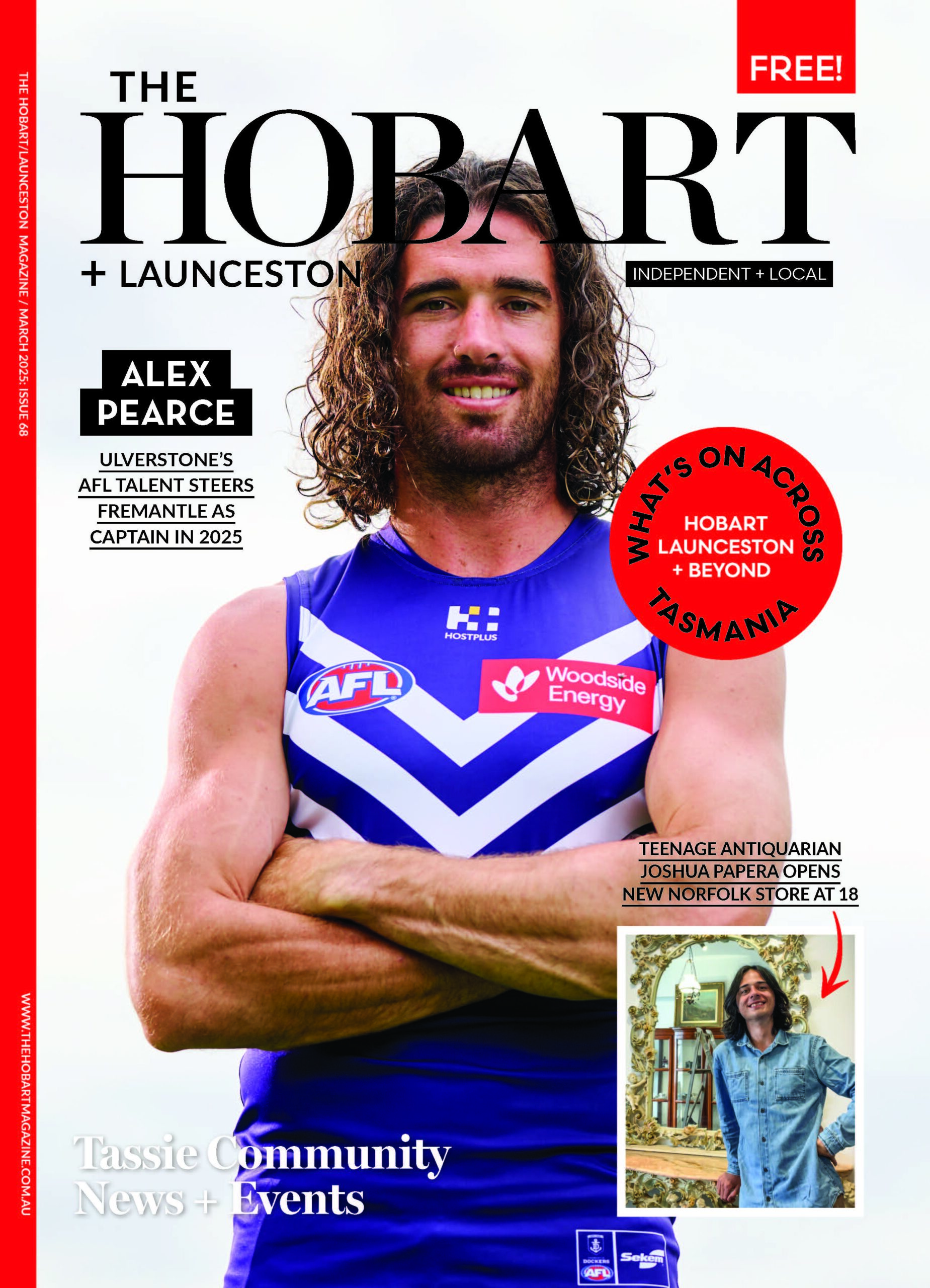Tunnel Hill Mushrooms
by Ollie Benson, Sprout Tasmania

It’s mushroom season! But at a time when Instagram feeds are full of foraged slippery jacks and saffron milk caps, there’s a grower on the outskirts of Hobart who’s found a unique environment for producing mushrooms all year round.
Dean Smith of Tunnel Hill Mushrooms has been growing mushrooms in an old railway tunnel at Mount Rumney since 2008. The tunnel, built in 1891, was part of the short-lived Bellerive-Sorell line, with trains passing through twice a day until it’s closure in 1926. Since then, it’s had quite the history, having been used as a storage facility during World War II, as a themed restaurant, and even for cosmic ray research.
Dean purchased 90 metres of the tunnel in 2000. In truth, he and his family bought the property not knowing what to do with the tunnel, but a chance visit from the original manager of Huon Valley Mushrooms, Dr Warwick Gill, kick-started what would become his passion. With Gill as his mentor and learning that the tunnel’s environment provided good conditions to grow in, Dean began experimenting with substrates and varieties, finding shiitake and cold loving winter strains of oyster mushrooms grew best. What started as a hobby has grown into a full-time enterprise. Dean has built his own lab, and here he can grow out cultures on agar filled petri dishes, transferring the cultures known as mycelium onto sterilized grain and then allowing it to spawn. From there a substrate is inoculated with the grain spawn, and once the mycelium has developed, its environment is changed by dropping the temperature and increasing humidity, and fruiting then begins. And this is where the tunnel comes in – with temperatures consistently around 13 degrees the natural environment inside has meant the tunnel has a renewed purpose and a new chapter in its rich history.

Although the tunnel has provided useful conditions for the fruiting, it’s not perfect. Temperatures inside do fluctuate, which mean consistent yields have been hard to maintain, so with demand for his produce increasing and after years of resisting, Dean has now purchased additional, more specialised growing space in the form of a fitted-out shipping container.
With much of the mushroom production moving to the container, Dean’s plans for the tunnel are now switching towards value-adding and agritourism. He has developed a shiitake vodka, and a range of tinctures using medicinal mushrooms such as reishi, lion’s mane, and turkey tail, which can all help with gut health and immune systems.
The history of the tunnel combined with the science of mushroom growing has already piqued the interest of schools, tour groups, and even politicians, and Dean would love to be able to host long-table lunches. He has started offering tours of the tunnel, but to increase his tourism offerings some infrastructure upgrades are necessary, and Dean is keen to source additional investment. As Dean says, “this place is unique and a showcase of Tasmania’s railway history. It’s a place we like to share with others. It’s not my tunnel, it’s not our tunnel, it’s everyone’s tunnel!”
THE FARMER’S FAVOURITE Dean loves lion’s mane mushrooms both for the beneficial effects on the brain and gut, but also for their sweetness and texture. They make an excellent substitute for lobster and work brilliantly in soups, broths, and as a mushroom ‘crab cake’.
DEAN’S FRIED KING OYSTER MUSHROOMS
Ingredients: A handful of king oyster mushrooms
A knob of salted butter
Half a lemon
Salt
Method: Slice the mushrooms into thin medallions. Place in a hot pan and dry fry to let the water cook out of them. When the natural sugars start to come out and caramelization begins hit them with the butter, salt, and lemon juice. Serve. It’s as simple as that!

